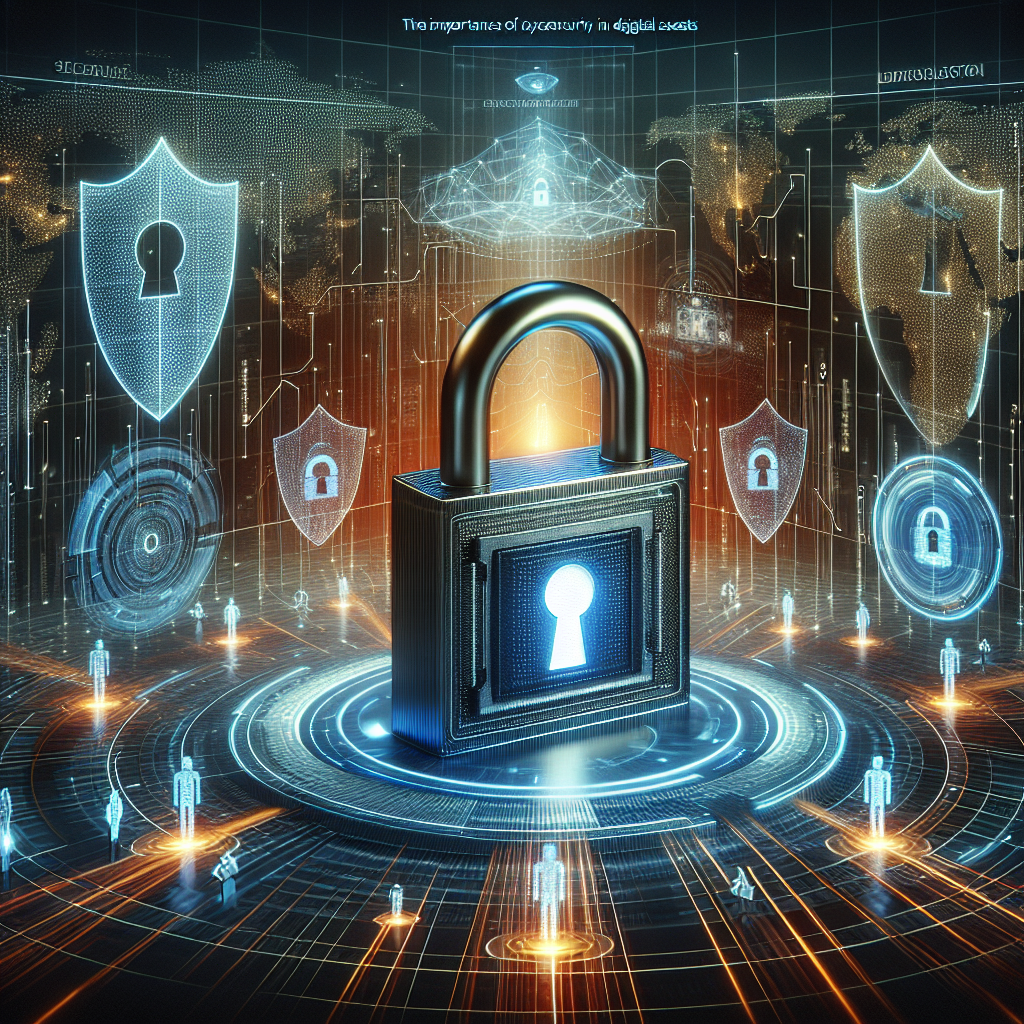In today’s world, where nearly everything is digitized, cybersecurity has become more important than ever before. With cyber attacks on the rise, businesses and individuals must take steps to protect their digital assets from malicious actors. In this article, we will explore the importance of cybersecurity in safeguarding digital assets and provide some tips on how you can enhance your online security.
Cybersecurity is the practice of protecting computer systems, networks, and data from cyber attacks. These attacks can take many forms, including malware, ransomware, phishing, and data breaches. By implementing strong cybersecurity measures, organizations can prevent these attacks and keep their digital assets safe from harm.
The Importance of Cybersecurity
There are many reasons why cybersecurity is important in safeguarding digital assets. Some of the key reasons include:
1. Protection from data breaches: Data breaches can have devastating consequences for businesses and individuals. They can result in the theft of sensitive information, such as credit card numbers, social security numbers, and personal data. By implementing strong cybersecurity measures, organizations can prevent data breaches and protect their customers’ information from falling into the wrong hands.
2. Safeguarding intellectual property: Intellectual property is the lifeblood of many organizations. Whether it’s trade secrets, patents, or proprietary information, protecting intellectual property is crucial for maintaining a competitive edge. Cybersecurity helps organizations protect their intellectual property from cyber attacks that could compromise their innovation and market position.
3. Maintaining business continuity: Cyber attacks can disrupt business operations and lead to downtime, lost productivity, and financial losses. By implementing strong cybersecurity measures, organizations can ensure that their systems and networks remain secure and operational, even in the face of cyber threats. This helps maintain business continuity and ensures that operations run smoothly.
4. Building customer trust: In today’s digital age, customers are more aware of cybersecurity threats and expect organizations to take steps to protect their data. By implementing strong cybersecurity measures, organizations can build trust with their customers and demonstrate their commitment to safeguarding sensitive information. This can help businesses attract and retain customers and maintain a positive reputation in the market.
5. Compliance with regulations: Many industries are subject to regulations that require them to implement specific cybersecurity measures to protect sensitive data. By ensuring compliance with these regulations, organizations can avoid legal penalties and reputational damage. Additionally, strong cybersecurity measures can help organizations demonstrate due diligence in protecting their digital assets.
Tips for Enhancing Cybersecurity
There are several steps that organizations and individuals can take to enhance their cybersecurity and safeguard their digital assets. Some tips include:
1. Use strong passwords: Use complex passwords that include a mix of letters, numbers, and special characters. Avoid using easily guessable passwords, such as “password” or “123456.”
2. Keep software up to date: Regularly update your operating system, applications, and antivirus software to patch security vulnerabilities and protect against the latest threats.
3. Enable two-factor authentication: Two-factor authentication adds an extra layer of security by requiring users to provide a second form of verification, such as a code sent to their mobile phone.
4. Educate employees: Train employees on cybersecurity best practices, such as how to identify phishing emails, avoid clicking on suspicious links, and report security incidents promptly.
5. Implement network security: Use firewalls, intrusion detection systems, and encryption to protect your network from cyber attacks and unauthorized access.
6. Backup data regularly: Backup your data regularly to an external hard drive or cloud storage service to protect against data loss in the event of a cyber attack.
7. Monitor your systems: Continuously monitor your systems for suspicious activity and respond promptly to any security incidents.
By following these tips and implementing strong cybersecurity measures, organizations and individuals can enhance their online security and safeguard their digital assets from cyber threats.
FAQs
Q: What are some common cybersecurity threats?
A: Some common cybersecurity threats include malware, ransomware, phishing, data breaches, and denial of service attacks.
Q: How can I protect my digital assets from cyber attacks?
A: To protect your digital assets from cyber attacks, use strong passwords, keep software up to date, enable two-factor authentication, educate employees, implement network security, backup data regularly, and monitor your systems for suspicious activity.
Q: Why is cybersecurity important for businesses?
A: Cybersecurity is important for businesses because it helps protect sensitive information, safeguard intellectual property, maintain business continuity, build customer trust, and ensure compliance with regulations.
Q: What should I do if my organization experiences a cyber attack?
A: If your organization experiences a cyber attack, you should report the incident to your IT department or cybersecurity team, isolate the affected systems, change passwords, and follow your organization’s incident response plan.
Q: How can I stay informed about the latest cybersecurity threats?
A: To stay informed about the latest cybersecurity threats, follow security blogs, subscribe to cybersecurity newsletters, attend cybersecurity conferences, and participate in cybersecurity training programs.
In conclusion, cybersecurity plays a crucial role in safeguarding digital assets from cyber threats. By implementing strong cybersecurity measures and following best practices, organizations and individuals can enhance their online security and protect their sensitive information from falling into the wrong hands. By staying informed about the latest cybersecurity threats and taking proactive steps to protect digital assets, you can mitigate the risks of cyber attacks and maintain the integrity of your data.
